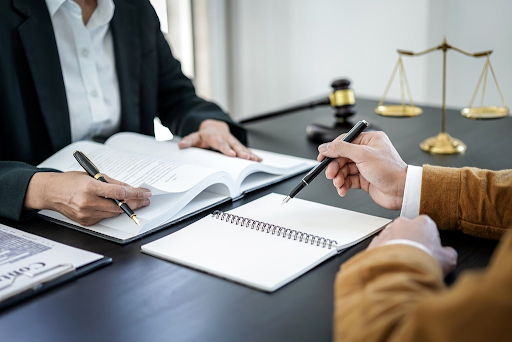Owning a home in the UK is a big step, offering independence, stability, and a long-term investment. But homeownership also comes with legal responsibilities that must be understood and followed. From maintenance duties to safety regulations, homeowners must stay informed to avoid legal issues and protect others around them.
Some of these responsibilities relate to property safety, especially in buildings with shared areas like flats or converted houses. In such cases, inspections for compliance are essential. For example, if you live in a shared building, arranging Fire Door Inspections London may be a requirement to ensure the property meets fire safety regulations.
Understanding Property Ownership
When you buy a home, your ownership is legally recorded by HM Land Registry. This registry confirms that the property belongs to you and shows any legal restrictions or rights that come with it. These could include access rights for neighbours or obligations to maintain shared structures such as fences or walls.
Some homes may also come with covenants—rules that limit what you can do with the property. These might stop you from changing the external appearance or running a business from home. It’s important to review your title deeds carefully to understand what applies.
Making Alterations and Extensions
Homeowners often want to renovate or expand their homes. But before starting work, you may need planning permission from your local council. This is especially true if the changes affect the outside appearance, size, or use of the building.
Even when planning permission is not required, building regulations still apply. These rules make sure that construction work is safe and energy-efficient. For example, changes to electrics, plumbing, or insulation need to meet national standards.
Council Tax and Local Responsibilities
All homeowners in the UK must pay council tax. The amount depends on your home’s value and the area you live in. Council tax goes towards local services such as road maintenance, rubbish collection, and emergency services.
Some councils may also charge for extra services, such as garden waste collection or parking permits. You can find details about what applies in your area on your local authority’s website.
Fire and Electrical Safety in the Home
Although private homeowners aren’t held to the same legal standards as landlords, it’s still important to ensure your property is safe. This includes installing smoke alarms, checking gas and electrical systems, and ensuring that exit routes are accessible in case of emergency.
If you own a flat or live in a building with shared corridors or staircases, additional fire safety rules may apply. This often includes shared responsibilities for emergency exits and communal fire alarms. Landlords are legally required to follow strict rules, but even homeowners in shared buildings should pay attention to fire regulations.
You can learn more about your legal fire safety obligations from the official UK government fire safety guidance.
Shared Walls and Neighbour Agreements
In terraced or semi-detached homes, you may share a wall with a neighbour. If you plan to carry out work that affects this wall—such as digging foundations, adding an extension, or doing major repairs—you must follow the Party Wall Act 1996.
This law protects both you and your neighbour by ensuring that work is carried out safely and fairly. You’ll need to give notice and, if needed, agree on terms before starting the work.
Noise, Boundaries, and Other Disputes
Homeowners have the right to enjoy their property in peace. But they also have a duty not to interfere with their neighbours’ enjoyment. This means keeping noise levels reasonable, maintaining fences, and avoiding damage from trees or plants.
If issues do arise, they can usually be solved with a conversation. However, if a solution isn’t possible, the local authority or even the courts may need to get involved.
Keeping the Home in Good Condition
While there’s no law that forces private homeowners to keep their homes in perfect condition, it’s still a good idea to stay on top of repairs. Roof leaks, broken pipes, or faulty wiring can cause serious problems—not just to your own home but also to neighbouring properties.
Neglecting maintenance could lead to expensive damage or even legal claims if it affects others. Keeping up with repairs also helps protect your investment and avoid problems when selling the property.
Waste and Environmental Rules
Homeowners must dispose of household waste properly. Councils offer collection services for general waste, recycling, and sometimes garden waste. Fly-tipping or dumping rubbish on public land is illegal and can lead to heavy fines.
If you’re doing renovations or garden work, you may need a skip permit or permission to dispose of certain materials. It’s always best to check with your local council before beginning major work.
Insurance and Liability
Most mortgage lenders require buildings insurance to protect the home against damage from fire, flooding, or other risks. Even without a mortgage, this type of insurance is strongly recommended.
Some homeowners also take out public liability insurance. This protects you in case someone is injured on your property—for example, due to a loose tile or an icy driveway.
Conclusion
Being a homeowner in the UK means having control over your living space—but it also brings legal and practical responsibilities. From council tax and building regulations to safety measures and shared property rules, it’s important to stay informed.
Taking simple steps like carrying out repairs, following planning laws, and cooperating with neighbours can help avoid disputes and protect your home. In shared buildings, paying attention to fire safety and maintenance checks, such as Fire Door Inspections London, is a key part of fulfilling your obligations.
Understanding your rights and duties helps you make informed decisions and ensures your home remains safe, legal, and secure for years to come. If you want to stay updated with posts like this, please follow us on DS NEWS.
